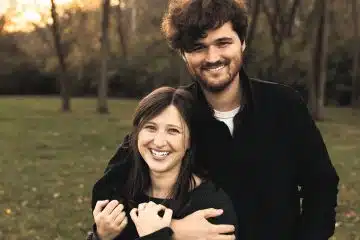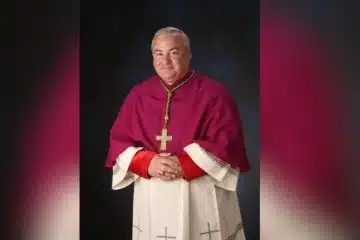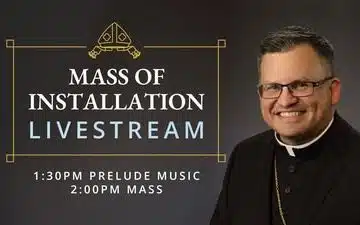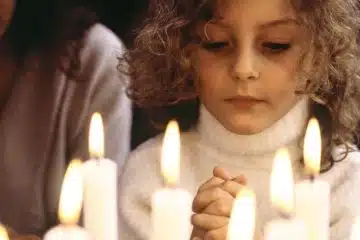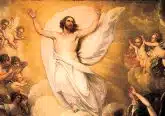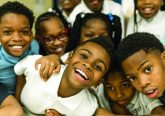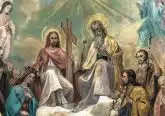Theology of the Body curriculum to be introduced at archdiocesan schools
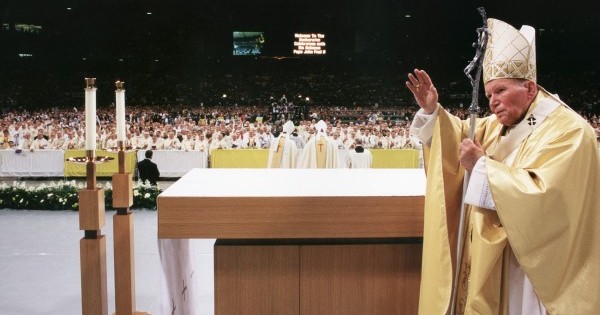
Students in Lisa Fletcher’s seventh and eighth grade religion classes at St. Margaret of York School in Loveland earn the grades, but their parents get an education, too.
The topics range from learning about Jesus as a human being, to what should you do if someone sexts you.
The class goes beyond studying sacraments and sin, but doesn’t quite reach the birds and the bees. It focuses on human dignity and stresses that people are to be loved, not used. Parental involvement is also required. It can be difficult for parents to broach some of the subjects with their children, but when the teacher breaks the ice, the conversation is able flow more freely.
“I wouldn’t have known how to bring up some of the topics,” admitted mother Sue Ann Klader. “It only took the first session for me to realize that this assignment was providing me opportunities to have conversations with our children that may not naturally come up,” she said.
Klader’s two older children were in Fletcher’s classes and she currently has a seventh grader. The lessons spawn discussions on morals, respect for others, and the meaning of love.
“It’s what stands us apart,” Fletcher said of the course. “It’s why parents send kids to Catholic schools.”
The component to which Fletcher and Klader are referring is called Theology of the Body. It is based on the teaching of Pope St. John Paul II on what it means to be a human being and is taken from his weekly Wednesday audiences.
“It’s a newer phenomenon, but it’s reconstituted in a way so the modern person can understand it,” said Leslie Kuhlman, executive director of Ruah Woods education center that is developing Theology of the Body curriculum. “It resonates with people because it speaks to our experience. And it’s an answer to what we see in the culture today, the breakdown of the family, people not understanding who they are, made as male and female in the image of God.”
At the request of Archbishop Dennis M. Schnurr, Theology of the Body will be incorporated into the religion curriculum of all schools in the archdiocese. The archdiocesan Office of Evangelization and Catechesis is working with the staff at Ruah Woods to develop the content and the method by which it will be taught. After a year of crafting, creating and drafting, the group has revised the curriculum for younger children. The result is the “Graded Course of Study: Pre-Kindergarten through 4th Grade Catechetical Programs” that now includes the Theology of the Body strand. It’s added to the current teachings of knowledge of the faith; knowledge of the sacraments; moral formation; praying with Christ; living in the community of the church; and living as a Christian in society.
The pilot program for Theology of the Body will be introduced in the fall. The staff at Ruah Woods will observe, get feedback on the lesson plans and make any necessary revisions. The final product will be introduced in classrooms the following year.
In a letter to those on the planning team the archbishop wrote, “I am very pleased to see that Theology of the Body will be thoroughly integrated into the curriculum, always ensuring that materials are age appropriate.”
He goes on to say, “Thus, it must be made clear to all that the Graded Course of Study for all grades — and not just pre-kindergarten through fourth grade — remains a ‘work in progress.’ The gift of faith is the greatest gift we can give our young people, and we want to continually assess the scope, sequence and effectiveness of the catechetical materials.”
Lisa Fletcher is ahead of the game. She was approached about incorporating Theology of the Body into her religion class five years ago. She then designed her own curriculum based on a course she took at Ruah Woods.
“Right after I took that class, I just saw such a need for it right away,” she said. “I thought I was going to incorporate it.”
After the students finish each lesson, the discussion continues at home. Parents initiate the talk by asking questions like: “What are some of the main vices your friends and classmates struggle with?” “When do you find it hard to be yourself?” “What are some things Jesus, who was totally human with a body, went through that you may have never considered?” “How do people use you?”
The answers can be very revealing to parents.
“Every year I felt that it was beneficial to my relationship with my children and beneficial to me,” said Klader. “I was learning some of the jargon I needed to use with my children.”
Fletcher said the lesson plan creates an atmosphere in her classroom where the kids can freely speak and not be judged. She sees a change in the kids when they return to her class as eighth graders.
“It’s almost like a mutual understanding of respect. They get it,” she said. “They know what it means to be respectful, to live your life like God intended it.”
Story by Patricia McGeever
This story first appeared in the April 2016 print edition of The Catholic Telegraph



